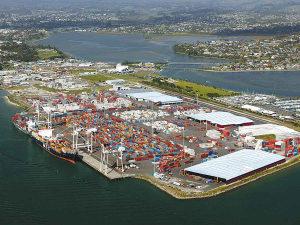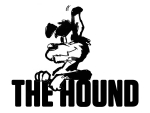A serious threat is posed to New Zealand’s agricultural and horticultural sectors by the brown marmorated stink bug (Halymorpha halys), MPI warns.
With the stinkbug season now in full swing, MPI is reminding importers of vehicles, machinery and parts to be vigilant and comply with the Import Health Standards advised in mid July.
A list of 33 stinkbug “problem countries” includes most of central and eastern Europe, Canada and the US.
Anything exported from these places after September 1 and arriving before April 1 is subject to tougher biosecurity compliance and administration. Importers must submit full paperwork to MPI prior to any shipment landing in NZ, including evidence the cargo was managed under an MPI approved system.
MPI also requires a cleaning certificate confirming outdoor or targeted machinery was cleaned inside and out -- with partial dismantling -- before its arrival in NZ.
All vehicles, machinery and parts must be labelled as having undergone a pre-shipment treatment. Details must include the treatment location, treatment type and date/time. If a whole container-load has been treated, an adhesive sticker must be fixed in a prominent position inside the front of the container.
Of concern to the agricultural and horticultural sectors will be used outdoor and targeted machinery not shipped directly from a factory. This includes used machines in general and nearly new, new aged stock or demo machines that have been moved around a host country.
Any machinery not for outdoor use but subject to biosecurity hazards is also included under the rules. This includes grain, seeds, soil, plant and animal materials.
The rules also cover used parts, whether individual items or whole machines destined for dismantling. Products imported from any of the target countries must be labelled and treated by an approved method then promptly sealed. The goods must be treated within 21 days of being exported to NZ.
Failure to meet these biosecurity obligations may result in ‘re-shipping without unloading if MPI inspectors consider the risk too great.
MPI recommends that used farm machinery be broken down into key components to help in the removal of contamination.
All plant material must be removed from crevices or recesses, and hollow box or tubular sections especially must be cleaned. No contamination should be left trapped behind or between electrical cables and hydraulic lines.
As part of the compliance check process, a selection of consignments will be pulled aside for a biosecurity audit, including inspection of the external cleanliness of shipping containers. Any MPI concerns about this will result in them being taken to a secure facility for internal inspection.
For importers deemed to be non-compliant, audits will be escalated to Level 2, meaning all future shipments will be inspected until five consecutive audits have been passed or 12 months has elapsed.
www.mpi.govt.nz/biosecuritynz











